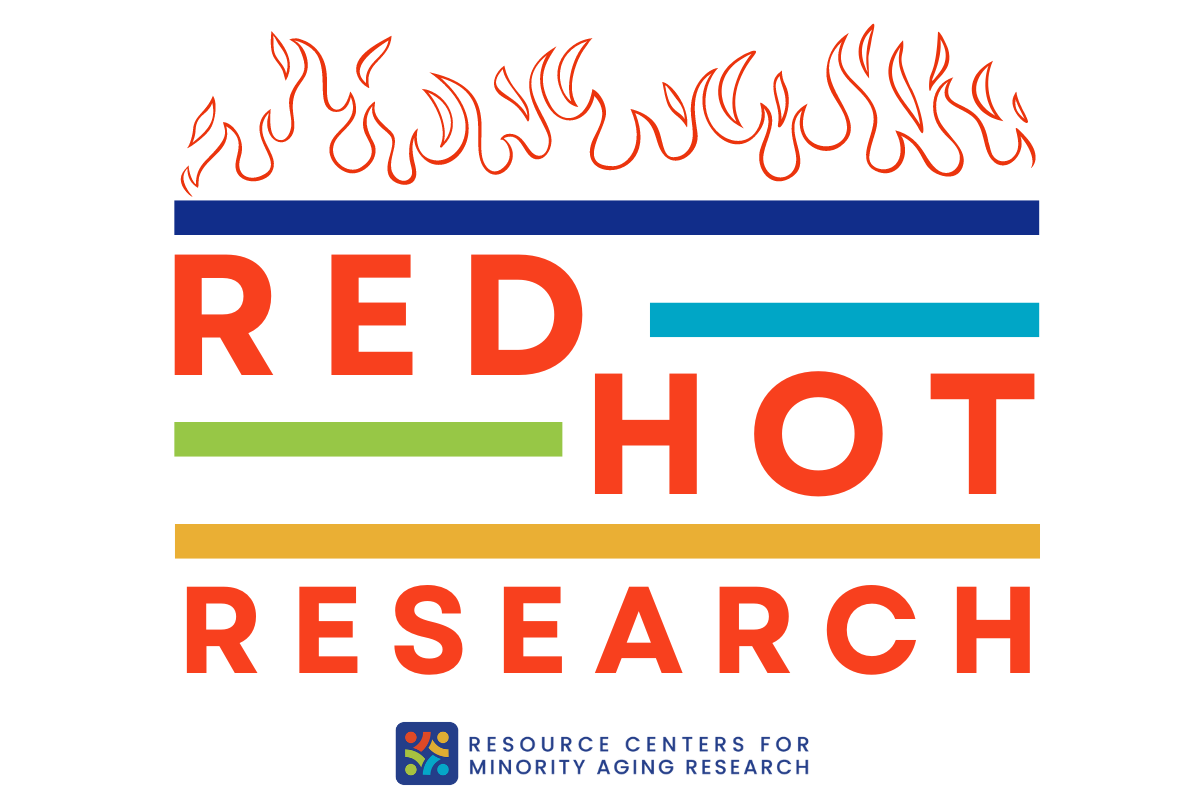
Red Hot Research 2
Includes a Live Web Event on 01/15/2025 at 12:00 PM (EST)
-
Register
- RCMAR Member - Free!
- Non-RCMAR Member - Free!
The RCMAR National Coordinating Center presents Red Hot Research, which uses the Pecha Kucha-style format for scientists to share their research through storytelling. Red Hot Research events will each feature 5 presentations from RCMAR Scientists (current and alumni), RCMAR NCC MSI Fellows, and RCMAR Centers. Presentations are limited to ~6 and a half minutes and each will have ~5 minutes allotted for Q&A.
Each session of Red Hot Research will focus on a particular theme related to the latest research findings on aging, AD/ADRD, and/or health disparities in older adults. Presentations will consist of a slide show of 20 images, with 20 seconds spent per slide. Each presenter has 400 seconds to tell their story with visuals (no words or numbers on slides) to guide the way! Red Hot Research encourages scientists to keep their presentations concise and dynamic.
Key:

Tamara Baker, PhD, FGSA
Professor in the Department of Psychiatry
University of North Carolina at Chapel Hill
She is an appointed member of the US Department of Veterans Affairs’ Geriatric and Gerontology Advisory Committee and the NIH’s Interagency Pain Research Coordinating Committee. Dr. Baker is also the Editor-in-Chief of Ethnicity & Health (Taylor & Francis Group). She is a Fellow of the Gerontological Society of America (GSA), and founder member and co-convener of the Historically Black Colleges and Universities (HBCU) Collaborative Interest Group. Her background in Gerontology, Psychology, and Biobehavioral Health has evolved into an active research agenda that focuses on understanding the behavioral and psychosocial predictors and outcomes of chronic pain and symptom management among older adults from historically marginalized populations. Specifically, she examines health disparities and inequities in access and availability to pain management resources among older Black adults.
